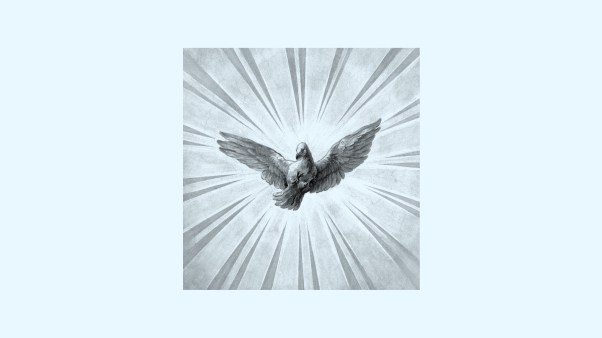A number of anniversaries have come and gone in 1986, not the least of which is the four-hundred-fiftieth anniversary of the first edition of Calvin’s Institutes of the Christian Religion, one of the most important theological works of the Western church.
Since Christians continue to read and appeal to this clear and systematic treatment of doctrine to this day, CT asked Donald McKim, associate professor of theology at the University of Dubuque Theological Seminary and editor of Readings in Calvin’s Theology (Baker, 1984), to survey recent studies of the Genevan Reformer that put new and significant Calvin resources into the hands of American readers.
This year’s biggest news in Calvin publishing is Eerdmans’s reprinting of the 1536 Institutes. This is the English translation by Ford Lewis Battles, whose masterful rendering of the 1559 Institutes (Westminster Press) is now the standard edition. Calvin’s textbook on theology grew from 6 chapters in 1536 to 80 chapters by 1559. But the first edition is very useful for seeing the initial stages of Calvin’s theological ideas and for feeling the freshness and clarity of his thought soon after his conversion to Protestantism.
Women And Freedom
Among the most interesting recent Calvin-related titles is Jane Dempsey Douglass’s Women, Freedom, and Calvin (Westminster, 1985). Douglass examines Calvin’s views of women and their role in the church in the context of Calvin’s understanding of Christian freedom.
Calvin made a distinction between those things eternally established by God as part of the divine order of creation and those things in Christian freedom that are “adiaphora” or “indifferent,” things that are subject to change in the church’s mode of life from time to time. Douglass argues that Calvin’s views on women must be seen in light of this distinction. According to Douglass, Calvin treated the New Testament passage concerning the silence of women in the church as part of the adiaphora and thus as a matter that is culturally conditioned.
On a wider level when considering other passages where Calvin dealt with women, Douglass perceives that the public subordination of women in Calvin’s time was something he accepted as a matter of public decorum. Nevertheless, says Douglass, Calvin fundamentally saw this perception of women as “historically conditioned and therefore subject to change.”
This did not mean, Douglass points out, that Calvin completely upset cultural patterns of his own day with regard to the roles of women in churches. But she does describe him as “ ‘an old freedom fighter’ who has been able to transmit Luther’s commitment to Christian freedom to later generations even though Calvin himself and his secular and clerical colleagues in Geneva did not see the same implications of that freedom for practical decisions about the life-style of the church or the city which modern people would see.”
Thus, claims Douglass, Calvin should not be invoked as an authority by those who categorically oppose the ordination of women today. After all, in his own context Calvin was strong on the spiritual equality of men and women and did not in principle exclude a woman’s right to preach the gospel.
Douglass’s study is important, not only for the light it sheds on Calvin’s views of freedom and women, but also as a model of how to read Calvin in his own historical and Reformation context so his views are not transferred literally from one time period to another.
Christian Living
Two other recent books provide us with selections from Calvin’s writings themselves: The Christian Life (Harper & Row, 1984), edited and introduced by John H. Leith, includes portions from Calvin on the Christian life, Christian freedom, prayer, election, life in the church, and the chief end of human life. And A Calvin Reader: Reflections on Living (Westminster, 1985), edited by William F. Keesecker, provides glimpses from Calvin’s personal life, but mainly short excerpts from his writings on topics from “Abraham” to “Zeal.” Both books may be read devotionally as a way of coming to know Calvin through his own words. They also present a side of Calvin that is too little known and appreciated—his personal piety and spirituality. Together with Ford Battles’s The Piety of John Calvin (Baker, 1978), these works present Calvin’s enormous concern with the Christian life and show how movingly he could write about it.
Calvin Scholarship: Alive And Well
Recent titles featuring solid Calvin scholarship include the following:
• Two books that provide significant studies of Calvin’s understandings of the major theological doctrines: Readings in Calvin’s Theology (Baker, 1984) draws together 18 essays by major Calvin scholars on the chief topics in Calvin’s theology, from election to eschatology. And François Wendel’s Calvin: The Origin and Development of His Religious Thought, for 25 years one of the major expositions of Calvin’s life and teachings (originally published by Harper & Row), has been reprinted by Labyrinth Press.
• A scholarly study that will be an important help for those considering the role and function of deacons in the church, John Calvin on the Diaconate and Liturgical Almsgiving by Elsie McKee (Librairie Droz, 1984). McKee has given us an illuminating portrait of how Calvin perceived the office and tasks of deacons by studying his exegesis of major scriptural passages. What emerges is the conviction that Calvin had a coherent view of the diaconate as servants of God in the church who carry out an all-important ministry of service in the world.
• A set of papers (Calvin Studies I, II, III, available from the Davidson College Presbyterian Church, Davidson, N.C.), which addresses Calvin’s views on many topics that pertain to Christian ministry today, such as church, preaching, and Christian community. These were delivered by scholars and pastors at three colloquia for Calvin studies from 1982–86.
Those who wish to keep abreast of current Calvin studies can do no better than to consult the annual bibliographies prepared by Peter De Klerk in the Calvin Theological Journal. But in this anniversary year, there are important new resources at hand for the appreciation and appropriation of John Calvin. These studies show the significance of Calvin’s legacy. But they also represent an attempt to integrate Calvin’s insights into the Christian church of today—for it was the church that Calvin loved and through which he believed God was at work for the good of the world.










